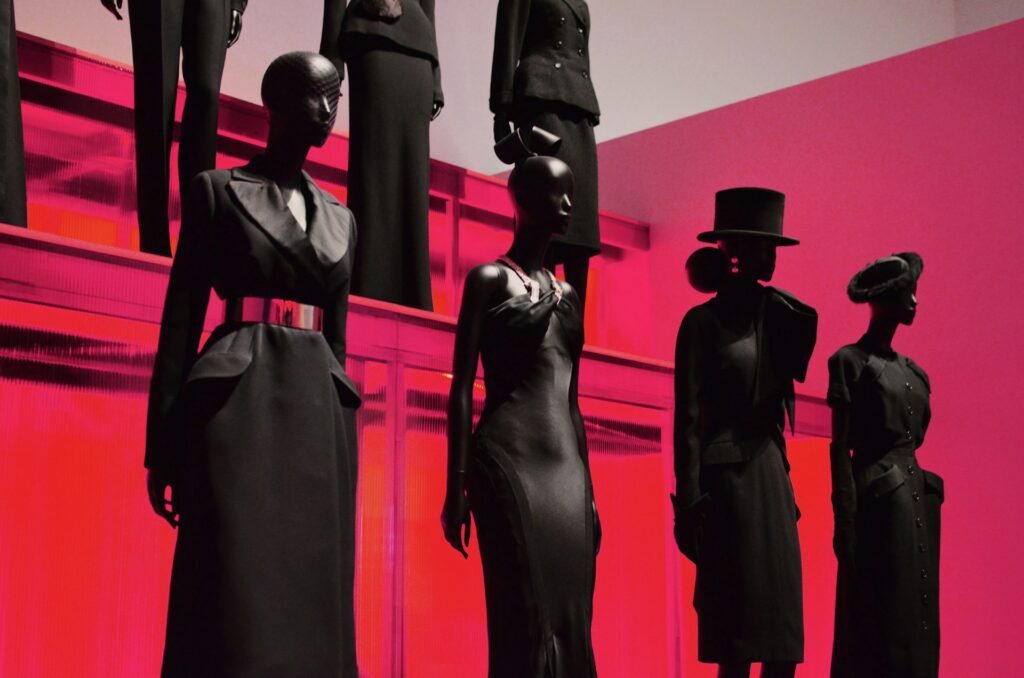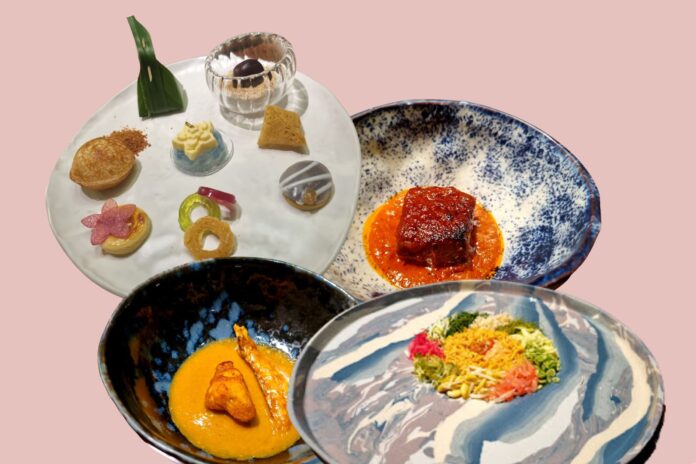The fashion industry is a dynamic sphere where the only constant is change. Brands that thrive are those that recognise their unique position and adapt with agility to the shifting demands of consumers and market conditions.
As such, a brand’s growth trajectory is significantly influenced by its ability to innovate and formulate strategies that resonate with its core values while meeting market needs. The necessity for a clear vision and a strong value proposition has never been more pronounced.
Navigating Growth Through Innovative Strategies
Indeed, in a sector where competition is fierce and consumer attention spans are short, a robust strategy that emphasises differentiation and value is essential. With all that in mind, here we explore how fashion brands can navigate growth through innovative strategies, ensuring they remain relevant and competitive.
Identifying Your Brand’s Unique Value Proposition
A unique value proposition (UVP) is the cornerstone of a brand’s identity. It’s what sets a label apart in a crowded market and captures the essence of what it offers that no one else can. For fashion brands, it’s about more than just the garments; it’s the story, the craftsmanship, and the emotional connection that they forge with their audience.
To articulate this proposition, brands must delve deep into their narrative, understanding the heritage or the innovation they bring to the table. It’s about clarity and specificity – knowing your audience, what they crave, and how your brand can fulfil that need in a way that no other can.
Whether it’s through sustainability credentials within the fashion industry, exceptional design, or inclusive sizing, your UVP should be the lighthouse guiding all business decisions, ensuring that every collection, campaign, and customer interaction reinforces what makes your brand singular.

Leveraging Digital Transformation For Competitive Advantage
Digital transformation has revolutionised the fashion industry, from design and production to marketing and sales. For brands looking to grow, embracing digital technology is not just a strategic move; it’s a requisite for survival. This digital pivot enables brands to reach global markets with ease, streamline operations, and provide a seamless customer experience.
However, the true competitive advantage lies in using these digital tools to gather insights and anticipate customer needs. Data analytics can inform everything from inventory decisions to personalised marketing campaigns.
Moreover, adopting e-commerce allows for a direct-to-consumer model, reducing reliance on intermediaries and fostering a closer relationship with the customer base. By harnessing the power of digital platforms, fashion brands can create a responsive and flexible business model that adapts to consumer trends and market changes with speed and precision.
Sustainable Practices: The Future Of Fashion
Sustainability has shifted from a niche concern to a central strategy for leading fashion brands. It’s no longer just about eco-friendly materials or green manufacturing processes; it encompasses a holistic approach to business that considers social, economic, and environmental impacts.
Consumers are increasingly aware and concerned about the sustainability of their purchases. They seek transparency and authenticity, pushing brands to redefine their processes and products. To integrate sustainability, brands must audit their supply chains, reduce waste, and innovate in material technology.
Onsite manufacturing plays a huge part in this. By producing goods closer to the point of sale, brands can significantly cut down on transportation emissions, ensure better quality control, and respond more swiftly to market demands. This approach not only reduces the carbon footprint but also supports local economies and creates jobs, fostering a more resilient and sustainable business model.
They should also communicate their sustainable initiatives effectively to their audiences. This commitment can open up new markets and consumer segments, particularly among the environmentally conscious. It is clear that for a fashion brand aiming for longevity and relevance, sustainability is not just an option; it is an imperative that shapes the future of fashion.

Strategic Planning: Laying The Groundwork For Scalable Growth
Strategic planning is the foundation upon which a fashion brand builds its path to success. It involves setting clear objectives, defining actionable steps, and employing the right tools and methodologies to achieve them.
In terms of the all-important Objectives and Key Results, expert OKR consultations can play a pivotal role in this phase. By engaging with an OKR consultancy, brands gain access to specialised knowledge and a structured approach to goal setting and outcome measurement. This expertise helps in aligning the brand’s efforts across various departments, ensuring that everyone moves in sync towards the common objectives.
The OKR framework is especially beneficial for fashion brands looking to scale, as it focuses on setting ambitious yet achievable goals that drive performance and innovation. Strategic planning, when done right, with expert guidance, can transform a brand’s aspirations into tangible results, paving the way for sustainable and scalable growth.
Consumer Engagement: Building Loyalty In A Digital Age
Engaging with consumers is a critical aspect of driving loyalty and retention in the digital age. The proliferation of online platforms has given brands numerous channels to interact with their audience, but it has also raised consumer expectations.
Personalisation is key here; customers expect to be recognised and understood by their favourite brands. To achieve this, brands must leverage data analytics to gain insights into consumer behaviour and preferences. This information can be used to tailor experiences, from personalised product recommendations to customised marketing messages.
Additionally, providing value beyond the product, such as through engaging content or exclusive online events, can create a sense of community and belonging among consumers. A digital strategy that prioritises customer satisfaction and engagement can help a brand stand out in a saturated market, turning casual buyers into brand advocates.
Innovative Marketing: Storytelling In The Digital Era
In the digital era, marketing is no longer just about selling a product; it’s about telling a story that resonates with the audience. Innovative marketing strategies are those that can weave a brand’s narrative into the consumer’s daily digital experience.
By leveraging multimedia content, interactive platforms, and the global reach of the internet, fashion brands can craft compelling stories that captivate and engage. Video campaigns, virtual reality experiences, and interactive lookbooks allow consumers to immerse themselves in the world of the brand.
The challenge is to maintain authenticity while being creative, as digital consumers are savvy and can distinguish between genuine storytelling and mere advertising. A successful digital marketing campaign will use storytelling to create an emotional connection, leading to stronger brand recall and loyalty.

The Importance Of Brand Consistency Across All Channels
Consistency is the thread that binds all facets of a brand’s presence, both online and offline. It’s crucial for fashion brands to ensure that their messaging, aesthetic, and values are coherent across all channels.
This consistency helps to build trust and recognition among consumers. Whether it’s the tone of voice used in social media captions, the visual theme in advertising, or the customer service experience, each element should reflect the brand’s core identity. When consistency is maintained, it solidifies the brand’s position in the consumer’s mind, making it easier for them to choose that brand over a competitor.
Regular audits of brand assets and communication strategies can help in maintaining this consistency, making sure that every touchpoint is an accurate representation of the brand/
Harnessing The Power Of Social Media Influencers
Social media influencers have become vital to the marketing strategies of fashion brands. Their power lies in their ability to reach and engage with large, often niche, audiences.
Collaborating with influencers allows brands to tap into these audiences in a way that feels personal and authentic. The key is to partner with influencers whose style, values, and followers align with the brand’s identity. A well-matched collaboration can yield content that feels organic and is more likely to inspire trust and action among an influencer’s followers.
It’s not just about the size of the following but the level of engagement and the influencer’s ability to sway their audience’s preferences. By harnessing the power of the right influencers, brands can amplify their reach and establish credibility in the digital space.
The Bottom Line
Thriving in the modern fashion industry requires a blend of authenticity, innovation, and strategic agility. Fashion brands must anchor themselves with a strong unique value proposition that resonates with their target audience, leverage digital transformation for a competitive edge, and commit to sustainability as a core component of their identity and operations.
Strategic planning, including the use of OKRs, lays the groundwork for scalable growth, while consumer engagement and innovative marketing are essential for building loyalty and brand advocacy in a digital world. Consistency across all channels ensures a cohesive brand identity, and collaborations with social media influencers can extend reach and credibility.
Ultimately, the brands that will lead the way are those that can seamlessly integrate these elements into a coherent strategy that speaks to the heart of the consumer and moves with the pulse of the industry.





